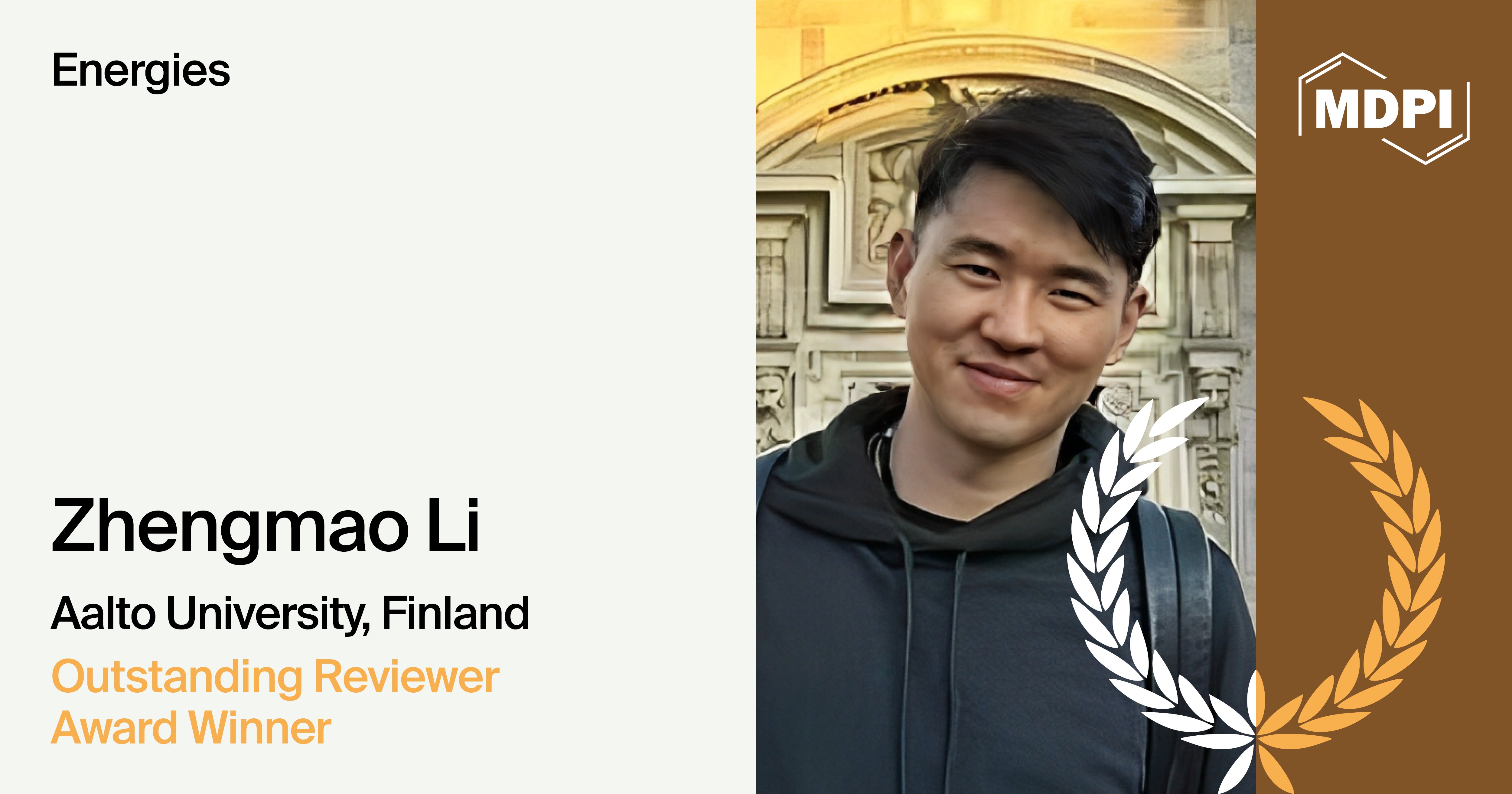Need Help?
23 July 2025
Interview with Dr. Zhengmao Li—Winner of the Energies Outstanding Reviewer Award

The Outstanding Reviewer Award is given annually in recognition of reviewers who generously contribute their time to reviewing papers and display thoroughness, professionalism, and timeliness in doing so.
We spoke with Dr. Zhengmao Li, winner of the Energies 2024 Outstanding Reviewer Award, to hear his opinions and ask about his experiences with scientific research and awards.
Name: Dr. Zhengmao Li
Affiliation: Aalto University, Finland
Research interests: combined heat and power; hydrogen; multi-energy system planning and operation
1. Could you give a brief introduction of yourself to the readers?
My name is Zhengmao Li, and I am an assistant professor at Aalto University. I work in the power and energy area, with a focus on smart grids and hydrogen. Thank you for the award, and I am happy to contribute further to the journal.
2. How was your experience reviewing for Energies?
My experience was excellent, first of all because Energies has a strong focus on its responsibility to authors and readers. For example, if a reviewer misses a deadline, the system will send a reminder. This is very helpful, because we are very busy, but this mechanism guarantees that the review is submitted on time. This also ensures that the process will stay on track. This shows respect for the authors’ work, and I hope all MDPI journals use this mechanism.
3. Do you have any suggestions for improving our review process?
The current system works very well, and if I were to suggest something, it would be to focus on reviewers who are experts on the topic of the paper. If more related research could be recommended to me, I would be more than happy to accept the invitations.
4. In your opinion, which research topics will be of particular interest to the research community in the coming years?
Some interesting topics will be energy systems, energy management and optimization, smart grid, and AI applications in energy systems.
5. What motivated you to participate actively in the peer review process, and what do you find most rewarding about it?
This gives me the opportunity to learn new things and broaden my perspective; the peer review process helps me grow as a researcher.
6. How do you manage your time and balance your responsibilities as a researcher and a reviewer?
My primary focus is my research; however, I like to integrate reviewing into my work when I need a break or a change in pace. It is a very good way of recharging while also engaging in meaningful academic work.
7. What advice would you give to early career researchers who are starting to participate in peer reviews?
The most important aspect is not to treat reviewing responsibilities as a burden but as a learning opportunity. It is a good chance to cultivate and deepen our research understanding.
8. How do you see the role of reviewers evolving with the advancements in artificial intelligence and automated tools in research publishing?
AI can be a useful tool for improving language and summarizing the main contents of a text. AI cannot replace a human when it comes to evaluating the scientific contribution of a paper or making editorial decisions. The peer review process will still rely heavily on human experience and judgement, and it will be strongly influenced by experience.

